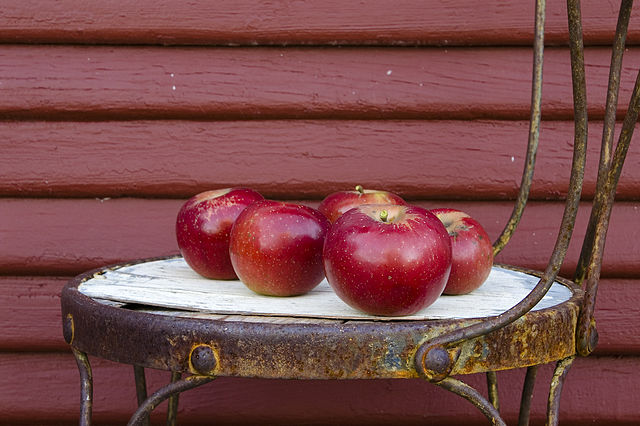A noun phrase – or NP or nominal (phrase) – is a phrase that usually has a noun or pronoun as its head, and has the same grammatical functions as a noun. Noun phrases are very common cross-linguistically, and they may be the most frequently occurring phrase type.
Those five beautiful shiny Arkansas Black apples is a noun phrase of which apples is the head. To test, a single pronoun can replace the whole noun phrase, as in "They look delicious".
In grammar, a phrase—called expression in some contexts—is a group of words or singular word acting as a grammatical unit. For instance, the English expression "the very happy squirrel" is a noun phrase which contains the adjective phrase "very happy". Phrases can consist of a single word or a complete sentence. In theoretical linguistics, phrases are often analyzed as units of syntactic structure such as a constituent. There is a difference between the common use of the term phrase and its technical use in linguistics. In common usage, a phrase is usually a group of words with some special idiomatic meaning or other significance, such as "all rights reserved", "economical with the truth", "kick the bucket", and the like. It may be a euphemism, a saying or proverb, a fixed expression, a figure of speech, etc.. In linguistics, these are known as phrasemes.
Image: The house at the end of the street
Image: Phrase 2



